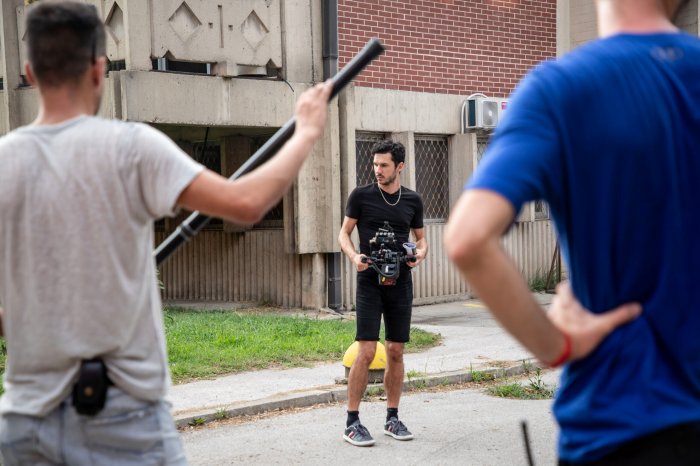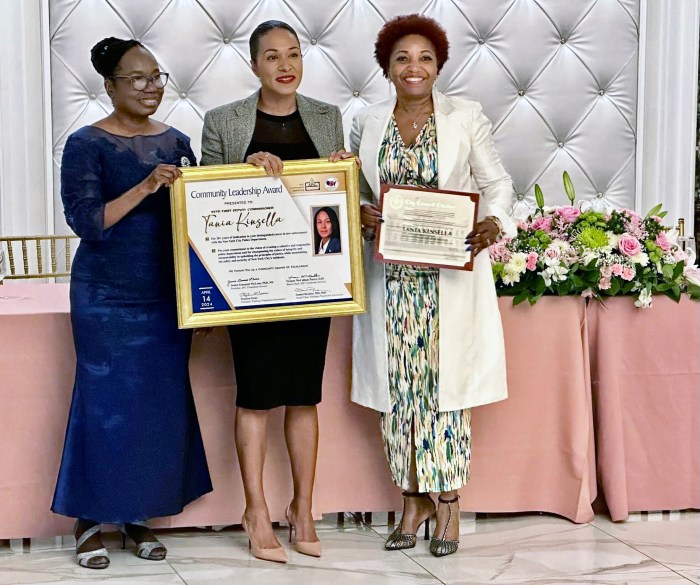Calling into question memory, fantasy, reality
Known as the “Grandmother of the French New Wave,” Agnes Varda has been a prolific director since the 1950s — when she belonged to an artistic circle that included Francois Truffaut and Jean-Luc Godard. In her new autobiographical film, “The Beaches of Agnes” (Les plages d’Agnès) 80-year-old Varda pieces together a cinematic scrapbook to recap her colorful life and career.
Chelsea Now spoke to Varda about her film, in a small conference room above the Film Forum theater — where “The Beaches of Agnes” is set to screen from July 1 through 14. Clad in purple from head-to-toe (and accessorized with ethnic jewelry), her famous soup bowl haircut is dyed red, with white roots growing out in the shape of a cap.
“I’m an unidentified flying object,” the petite filmmaker says in accented English, “And so is this film. This is not reportage. It is not a documentary. It’s not a fiction.” As an experimental director, Varda works in both fiction and nonfiction. “The Beaches of Agnes” is a combination of both. She revisits important places from her past — mostly beaches — and also recreates images from memory or fantasy, to illustrate key periods in her life.
“I included people to represent moments in my life, not just because they are my friends,” she says, referring to the numerous celebrities and figures in cinema that are sprinkled throughout the film (including her fellow Left Bank directors — Chris Marker, Alain Resnais, and her late husband, Jacques Demy). Most surprising are clips of Gerard Depardieu and Harrison Ford, who she filmed in their first roles.
“I see big blockbusters and enjoy them, but I want to use cinema for something more complex, like life,” she says. “I see cinema as a puzzle of bringing pieces together, like a landscape and a face. My new film is my portrait; an unfinished portrait, I’ll say.”
Born in Brussels in 1928 and named “Arlette,” Varda showed a burgeoning independent spirit at age 18 when she legally changed her name to “Agnes” after a Greek paternal aunt she never met.
Self-taught and unconventional, Varda developed her unique style from a background in still photography that followed art history studies at the Ecole du Louvre. Her greatest influence was the surrealist movement in painting and writing, with its emphasis on free association and unexpected juxtapositions. “I was trying to make a new language and reinvent reality,” she says. Although her new film had a solid art house run in her home country, she admits that since her work is not in the mainstream, it doesn’t make much money.
As a rare female filmmaker working since the 1950s, Varda has no counterpart in the United States. She says, “There were other women working in film in France when I began, but I was the first to fight for a new kind of cinema. I pushed other women to join. Now we have more. There are many directors and editors. Not only that, but mixing and sound ladies. I pushed them. I said, ‘Learn! Don’t say it’s difficult for women!’”
From the start, Varda has concentrated on women’s stories, many inspired by her own life. In 1958, unmarried and pregnant with her first child, she made “Diary of a Pregnant Woman” (L’Opéra mouffe) which featured the nude profile of a pregnant woman, decades before Demi Moore posed for the cover of “Vanity Fair.” Her most famous work from 1962, “Cleo from 5 to 7” (Cléo de 5 à 7) is a real time countdown of the two hours before a woman is to learn from her doctor if she does indeed have cancer. In 1976, she made “One Sings, the Other Doesn’t” (L’une chante, l’autre pas) a seminal film set amidst the nascent women’s movement in France.
“I am a feminist. I believe in the struggle for women’s rights and women’s body integrity,” she says, and then bemoans the current backlash to the kind of feminism she fought for, exemplified by the “invasion” of pornography on French television.
So self-determined is the feisty director, that in 28 years of marriage, Varda never collaborated with her husband, who directed “The Umbrellas of Cherbourg,” and is a key figure in the history of cinema. “Why should I work with him?” she asks. “I wouldn’t give him a screenplay until I was almost finished.”
Their only joint effort was “Jacquot,” a tribute to him, based on his memoirs, and completed just after his death in 1990. In “The Beaches of Agnes” Varda discloses for the first time that her husband died from AIDS. When she hears his name, her demeanor visibly changes. Her eyes well up and she looks down at her gold wedding band. “Since Jacques died, I never wear other rings,” she says.
“The Beaches of Agnes” runs July 1-14 at Film Forum (209 W. Houston Street, www.filmforum.org)


































